Arturia MiniBrute V – Going Back To My Brutes
Exactly a week after launching the newest member of their Brute family, Arturia MiniBrute V returns to where it all started 12 years ago.
We’ve barely caught our breath since the announcement of the PolyBrute 12. It was one of the biggest draws of last week’s amazing Superbooth ’24 event. Crowds flocked to see and hear the new flagship. So it is easy to forget where Arturia’s analog hardware started twelve long years ago.
The Arturia MiniBrute V – Standout Features
- An accurate rendition of the original MiniBrute hardware
- 8 Voice Polyphony with mono and unison modes
- Built-in Effects
- Steiner-Parker Filter with Brute Factor
- Beefy Sub-oscillator
The Circle of Synths
The original MiniBrute synthesizer was a compact, single oscillator synth with a Steiner-Parker filter, separate filter and amp envelopes, an LFO and an arpeggiator. The oscillator was capable of producing four waveforms simultaneously (square, sawtooth, triangle and white noise), all able to be mixed to taste.
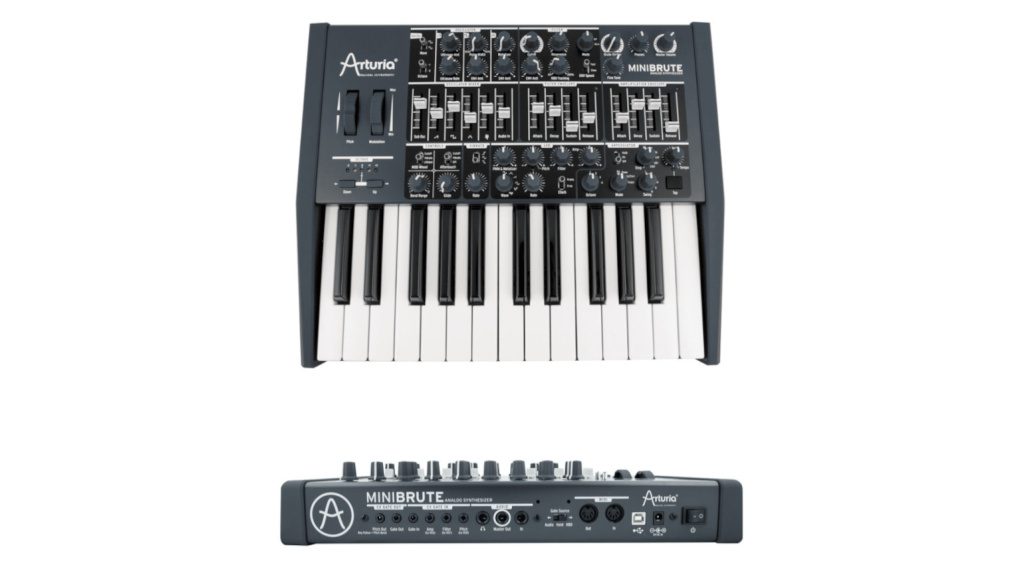
Furthermore, each waveform had a dedicated waveshaper. Arturia may have been the new kids on the block, but they turned up and meant business. I recall the hub-bub around this once exclusively software company even daring to consider it could go down the hardware route. That sentiment did not age well!
And so, in their 25th year, the Arturia MiniBrute V takes them back to their roots. The software company that dared to disrupt the hardware market delivers their debut offering as software. So how does MiniBrute V fare today and does the software cut it?
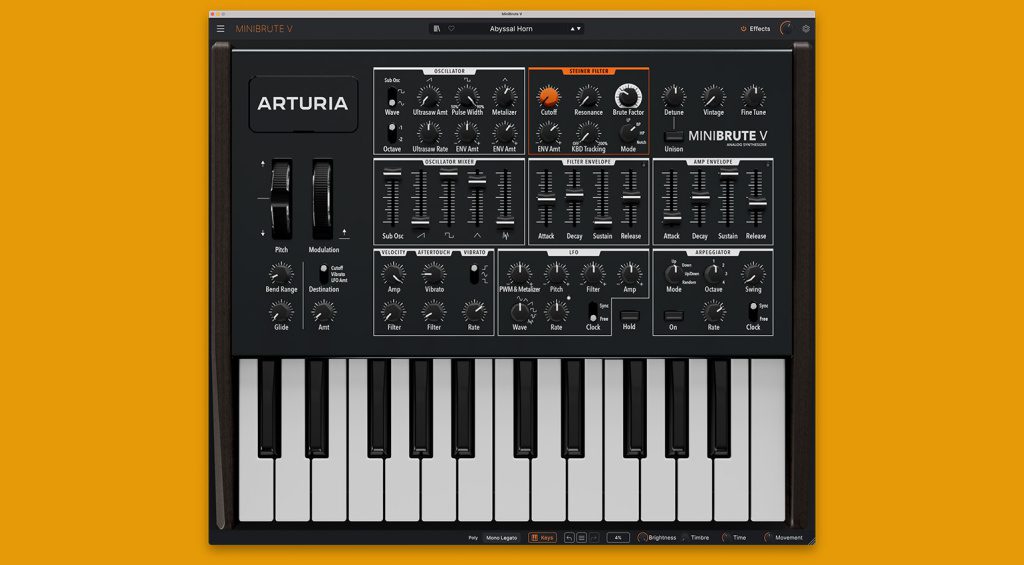
Instantly Familiar
I wish I had an original MiniBrute to compare this with, but time constraints, deadlines and non-disclosure agreements prevented me from laying my hands on one in time to write this review. However, the software version goes a little way beyond the hardware, so maybe a comparison wouldn’t be fair?
The UI of MiniBrute V will be instantly familiar to MiniBrute hardware users. A few tweaks here and there to accommodate new or improved features do not detract from the simplicity of the MiniBrute interface. It is still delightfully simple and immediate.
It is actually very refreshing that they haven’t tinkered with the original MiniBrute concept that much. The unison mode is one such small addition which beefs up the sound even further. As is tradition these days, the new ‘Vintage’ knobs introduces subtle calibration variations to just mess things up nicely.
The Effects Section
The original MiniBrute was a delightfully pure analog experience. But it would be remiss of Arturia not to offer up a healthy set of their superb FX. Actually, healthy is a bit of an understatement. There are four FX slots into which you can drop any one of a selection of fine algorithms.
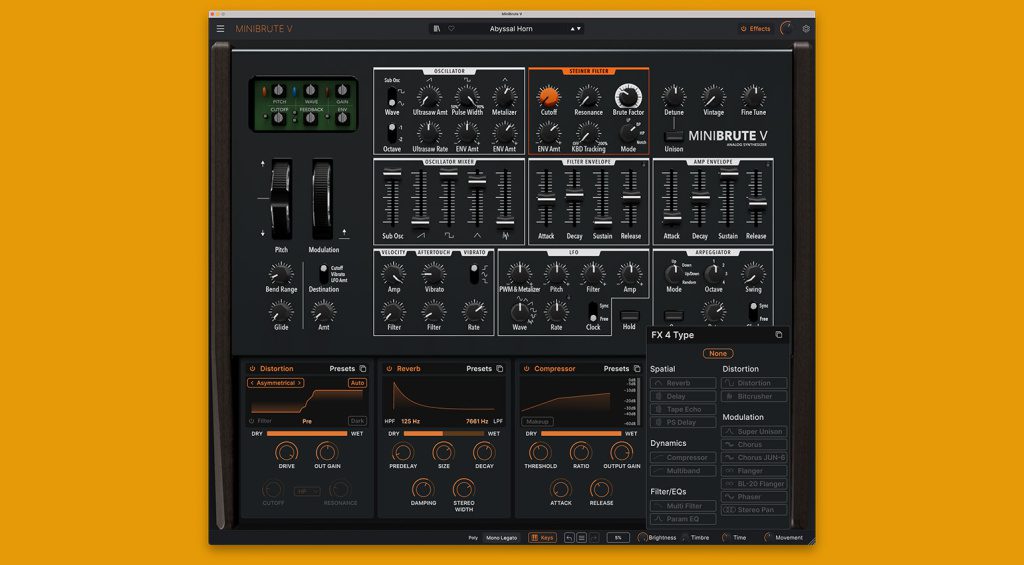
These include the usual reverbs, delays and modulation options. They also include things like Arturia’s JUN-6 chorus, or their BL-20 Flanger. There are also EQs and dynamics to help you sculpt the already characterful MiniBrute sound even further.
As seen on other recent software offerings from Arturia, there is a hidden panel that delivers some more fine-tuning capabilities. These allow control for the levels of dispersion within the waveforms, filters and envelopes, for example.
Presets
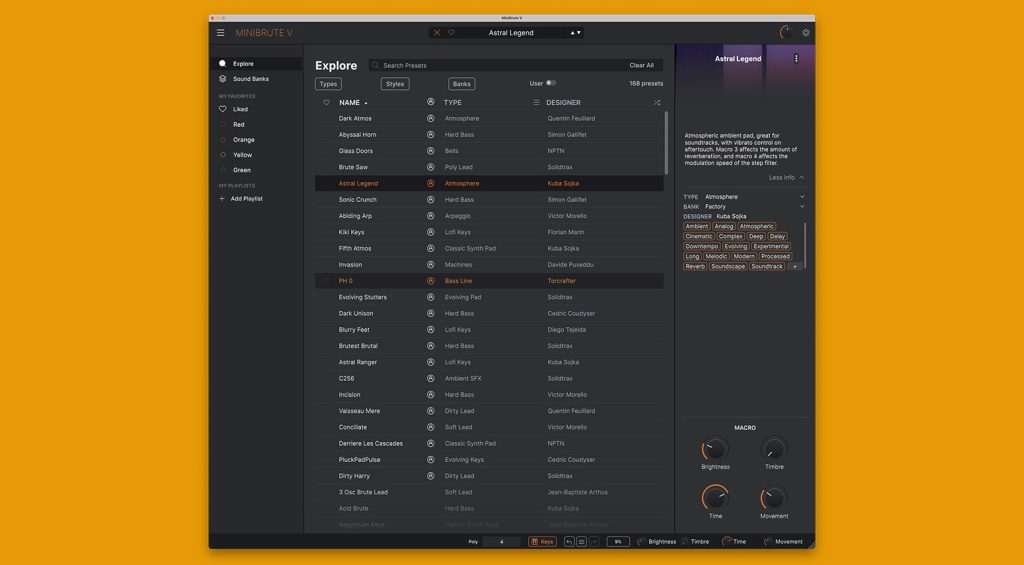
Of course, the one thing the original hardware didn’t have was presets. As you might expect, the plugin version supports patch storage and library management using Arturia’s now-common search and categorisation system.
There a favourites facility and comprehensive library filtering to help you get the sound you want as quickly as possible. One assumes that a link to the Arturia sounds store will make an appearance at some point.
In Conclusion
The original hardware MiniBrute came along at a time when new and exciting analog hardware synths were few and far between. Arturia, by then kings of great software synthesizers, had the foresight to try their hand at reinvigorating that market. It is safe to say they succeeded.
It might be all too easy to cast MiniBrute V aside as some anniversary folly, a cute little anachronistic throwback to a different time. That would be both lazy and wrong. MiniBrute V delivers a unique and individual-sounding single oscillator synth with some sensible and, most importantly, useful extras.
I hold my hands up as being one of those people, back in 2012, who thought Arturia was stepping outside their lane with a small, single-oscillator analog synth. The subsequent love and appreciation for the hardware showed me I had that all wrong. Arturia 12 years on are, in this journalist’s humble opinion, one of the best and most innovative hardware synth manufacturers today.
The Brute family is thriving. Long live the Brutes!
Pros and Cons: The Arturia MiniBrute V
Pros
- An Arturia Brute oscillator in software – A sign of things to come?
- Simple, intuitive UI
- MPE support
- Macros
- Classic single-oscillator sound
Cons
- Choosing polyphony can sometimes cause a really harsh, overloaded sound
- It makes me want to seek out the hardware and buy one!
- Would have been nice to have had the MiniBrute 2S features, including the patch points
More Information
The Arturia MiniBrute V is available to buy now for an introductory price of just €99 (full price €199). There’s also a free demo available from the Arturia website!

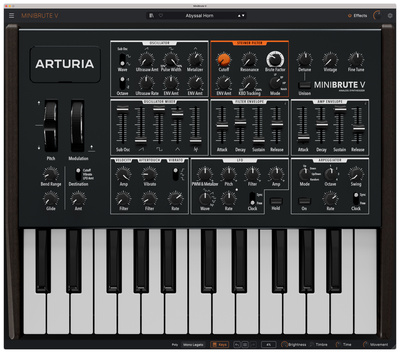
Note: This article contains promotional links that help us fund our site. Don’t worry: the price for you always stays the same! If you buy something through these links, we will receive a small commission.
3 responses to “Arturia MiniBrute V – Going Back To My Brutes”

 4,4 / 5,0 |
4,4 / 5,0 | 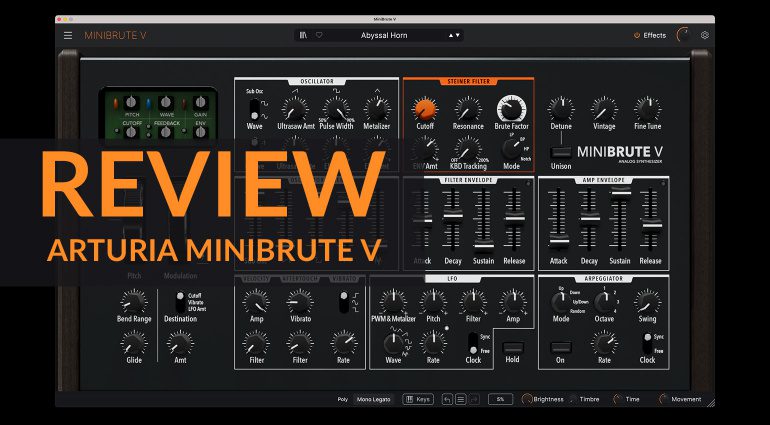
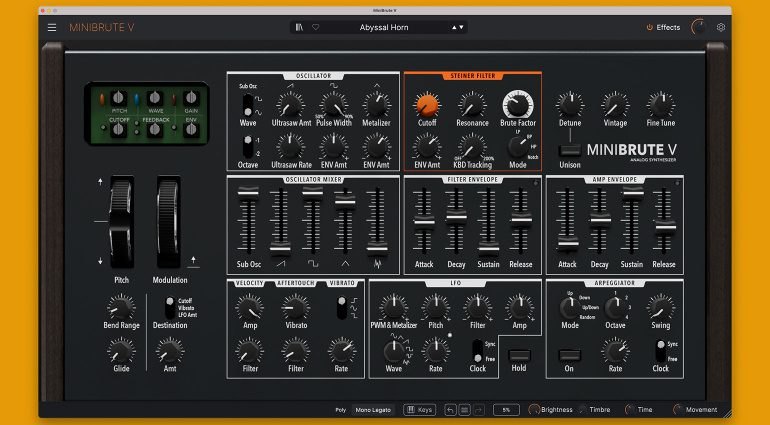
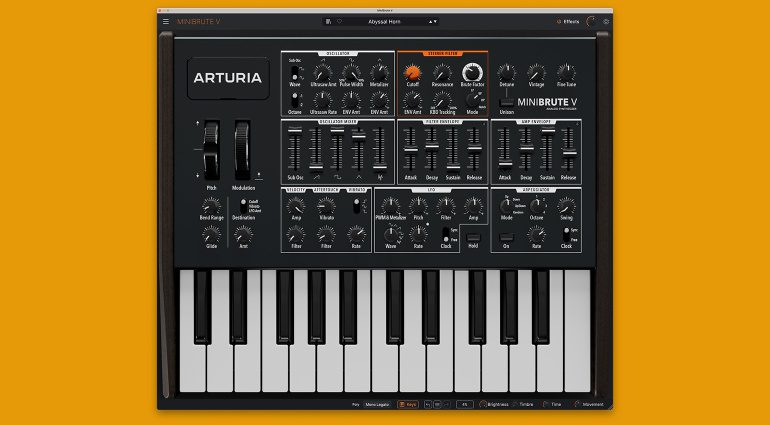
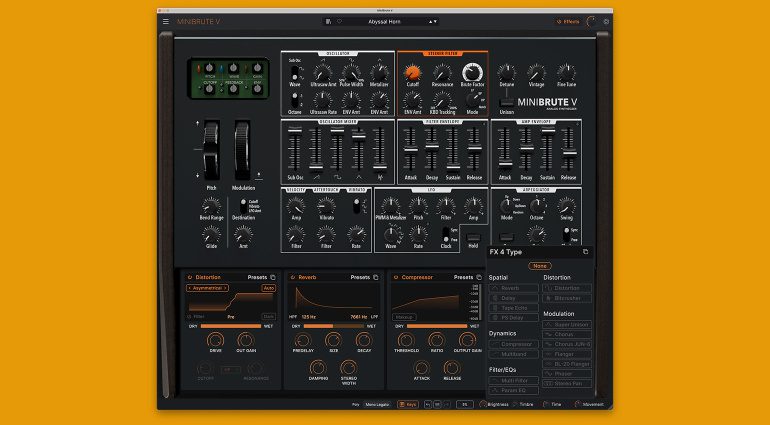
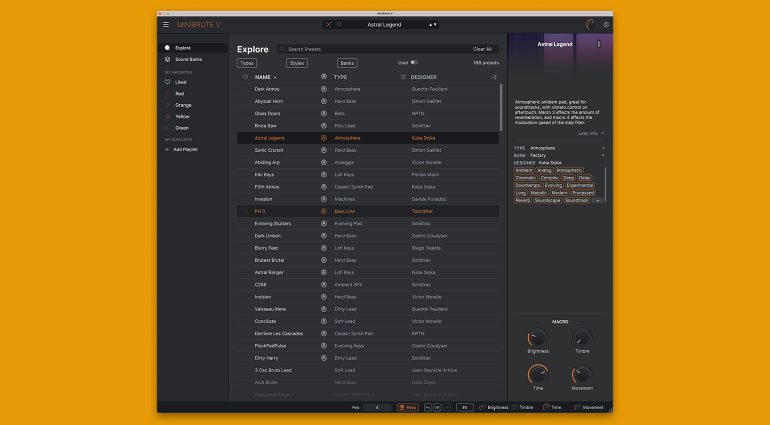






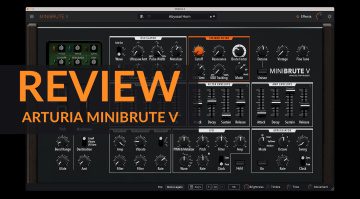

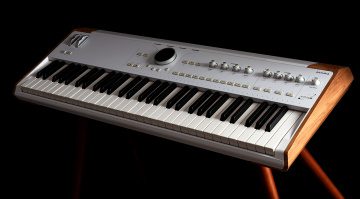
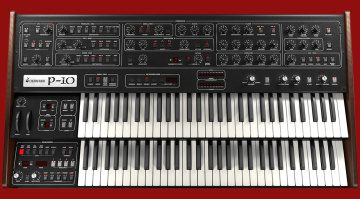
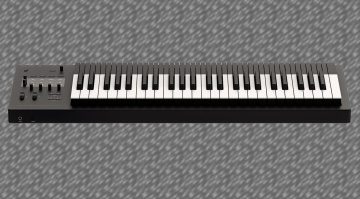
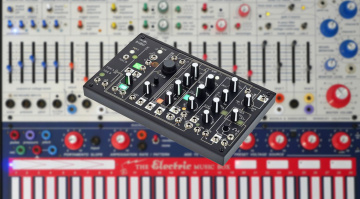

Nice one, hopefully the sound is close to the hardware otherwise they will never hear the end of it 😉
At first I thought that was a bit ridiculous, and then I realized this could help me find good patches on the hardware minibrute and re-evaluate it.
Oh, and 199€ is actually the price of a real minibrute on the market…
hopefully the knobs won’t get sticky on this one:)